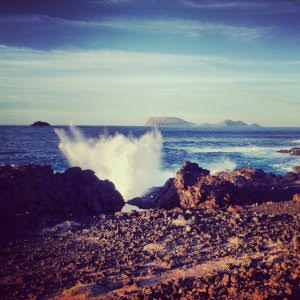
TEACHING PHILOSOPHY
Just a few lines …
The evolution and ecology of organisms on islands has fascinated biologists since the eighteenth century. I am from Tenerife (Canary Islands, Spain), a small volcanic island in the Atlantic Ocean, and growing up so close to nature has been a major influence on my fascination with land plants and their ecology and evolution. My roots as an islander and experience as a scout leader and camp monitor created the foundation of my teaching philosophy, which is loyalty and devotion to nature.
Over the last 10 years I have had the good fortune to work with and learn from a number of exceptionally knowledgeable teachers and researchers, including A. Vanderpoorten (Belgium), A.J. Shaw (USA), J.M. Fernández-Palacios and J.M. Gonzalez-Mancebo (Canary Islands), M. Carine (UK), B. Emerson (New Zealand), N. Alvarez (Switzerland) and L. Hedenäs (Sweden), among others.

Naturally, they have greatly impacted my approach to teaching. They have taught me the importance of not only explaining concepts and analytical techniques clearly, but also creating the space to invite personal hypotheses and questions. This is my main objective every time I step into the classroom. I want to take from my background as a researcher to present information, but also foster an environment that promotes classroom discussion and individual critical thinking.
During the last four years, I have taught undergraduate and graduate theoretical and practical lessons at La Laguna University (Spain) in subjects such as ‘Plant Systematics’ (both spermatophytes and bryophytes) and ‘Research Projects’, as well as ‘Plant biogeography and evolution’ (for more details, please contact me). Looking back at these teaching opportunities, I try to create a successful classroom by meshing content and interactive pedagogy. In my classes, I utilize discussion, fieldwork, lab work, group activities, and scientific research on angiosperms and bryophytes. However, a big portion of learning takes place outside of the classroom. I strongly encourage students to take advantage of office hours and promote the use of local resources such as libraries, databases and plant collections.